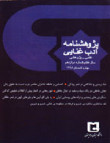Study of Existentialist Notions in Modern Poetry
One of the most important philosophical schools which has an important role in the emergence of literary and artistic works is existentialism. The philosophers of this school of thought are Sartre, Camus, Heidegger and Nietzsche, the creators of many literary works with philosophical themes. Iranian contemporary modern poets express these philosophers’ thought patterns, specifically Sartre, in their poems. With this in mind, it is impossible to understand their poems and personalities without considering components of existentialism. The basis of this school is thinking about human beings and existence, freedom and choice, as well as responsibility and social commitment. Persian modern poets have deliberately pondered on existence and inexistence based on their individual characteristics, time to time. They also casually wrote some poems based on the socio-political situation which are to some extent derived from existentialism.
This study hired a library research method in which the components of existentialism were expressed and different examples of poems by Persian contemporary poets were selected and analyzed. Threads of existential thoughts were analyzed in poems of Esmaeel Khoyee, Siavosh Kasraee, Esmaeel Shahrody, Hamid Mosaddegh and Nader Naderpour.
There are different notions prevailing about the etymology of existentialism; however, the most suitable and reliable one is that the Latin verbs existo and existere mean step forth, arise, become. Terminologically, the philosophy of humanism and Phenomenology (against extro) is only attributed to the creatures aware of special reality who can deliver their awareness to other aware creatures; this awareness is valid for the recognition of the subject. In other words, existence is applied to the special existence of human beings and is considered against essence. Existentialism is a philosophical school of thought expressing the idea that human existence is prioritized over the essence. In existentialism, in fact, the material existence of human being precedes its essence in a way that after the existence of the substance and his or her materialistic aspects, he or she can determine his or her faith himself or herself. It was in the 60s and 70s when existentialism gained popularity in Iran. The related books were translated and Ahmad Fardid started teaching this philosophical school of thought at university. In the meantime, some of Sartre books were translated and some article were written in this regard. Many writers and poets got acquainted with the definition of existentialism. In the study of contemporary poems, the themes of which were romantic, socio-mystical, political, epic, we encountered notions which expressed special philosophy in the poems of this era. Sometimes, the poets in this period were tired of social issues and strove to change the political system and social values and feel responsible for the world and whatever was in it. In this way and situation, contemporary poems were influenced by the philosophy of existence and essence.
The relationship between philosophy and literature is unbreakable in a way that even existentialist philosophers found literary works as a vehicle to express their philosophical notions. Therefore, this school of thought is known as a philosophical-literary school. Sartre is one of the biggest philosophers of this school in which his notions developed under the name of existentialism. Among temporary poems’ themes is philosophical thoughts especially notions, compatible with existentialistic ideas. There are different reasons for the emergence of existentialistic ideas in our contemporary literature. It is either probable that a poet deliberately addressed this subject thinking about God, the creator, the world, human beings, time, faith and death, or the poet may subconsciously think about these subjects and started writing poems with philosophical themes which can engage any thoughtful thinker’s mind. On the one hand, since existentialism is philosophy of existence which values human beings and their personality development and the creation of events of by themselves, it is a human being who creates his or her own existence. In this regard, freedom, choice and responsibility become valuable in the poet’s mind; this freedom and choice is accompanied with anguish and stress. On the other hand, human beings should be committed to the society and should proceed to change their own faith and history. Thinking about time which brings about a kind of thinking about death is vividly seen in contemporary poets’ works. This is the result of existentialistic influence on the contemporary poets
- حق عضویت دریافتی صرف حمایت از نشریات عضو و نگهداری، تکمیل و توسعه مگیران میشود.
- پرداخت حق اشتراک و دانلود مقالات اجازه بازنشر آن در سایر رسانههای چاپی و دیجیتال را به کاربر نمیدهد.


